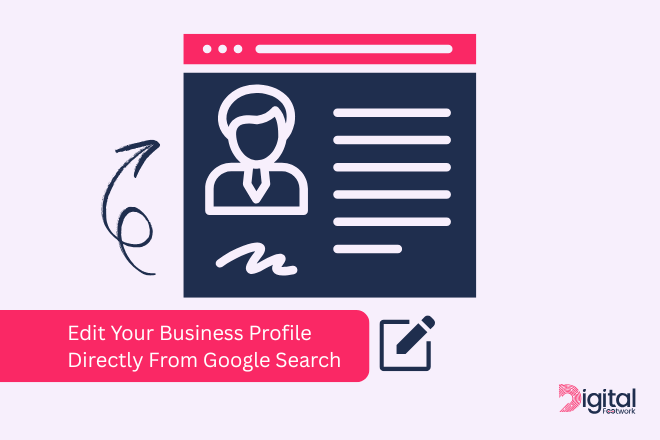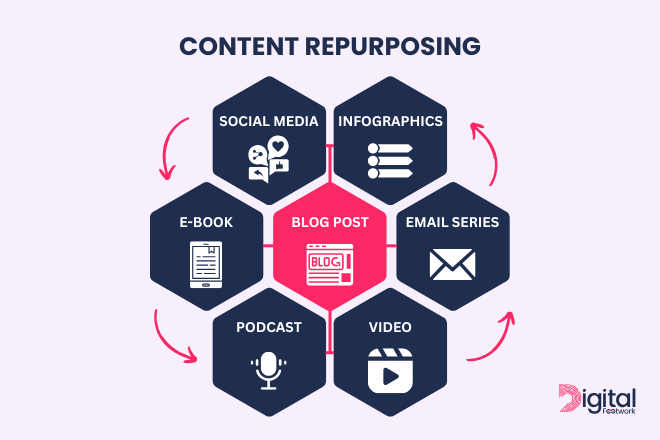Table Of Contents
- 2. Leverage SEO for Visibility
- 3. Go Local with SEO
- 4. Use Email Marketing Wisely
- 5. Experiment with Influencer Collaborations
- 6. Set Up Referral Marketing Strategies
- 7. Try Multi-Channel Marketing
- 8. Move Toward Omnichannel Experiences
- 9. Optimize for Performance Marketing Channels
- 10. Get Creative with Video Content
- 11. Host Low-Cost Events or Webinars
- 12. Repurpose and Diversify Content
- 13. Use Customer-Generated Content (UGC)
- 14. Partner with Other Small Businesses
- Wrapping It Up
Small Budget, Big Growth
Running a small business often feels like you’re competing in the big leagues with a shoestring budget. The good news? You don’t need a million dollars to achieve digital marketing success. You just need a smarter game plan, and with the right approach, even a modest investment can help you stand out against larger competitors.
The secret lies in smart digital marketing: choosing strategies that deliver maximum impact for minimal cost. And here’s where many entrepreneurs miss the mark: success isn’t about putting all your energy into one channel. True growth comes from diversification in marketing and knowing how to tap into the right marketing channels for your audience.
For small businesses, every dollar counts. So let’s make it happen with 14 low-cost marketing ideas for small businesses.
Idea 1: Build a Strong Content Marketing Strategy
A solid content marketing strategy for small businesses is one of the most cost-effective ways to grow. Blogs, guides, videos, and FAQs act like digital assets that keep attracting traffic long after you publish them.
Unlike paid ads that stop when the budget ends, content builds trust and authority over time.
Start small: Answer common customer questions, share quick tips, or showcase expertise through short videos. Consistency is the real driver of digital marketing success here.
Idea 2: Leverage SEO for Visibility
A strong SEO strategy for small businesses is one of the most efficient ways to get discovered online without spending a fortune. You can start by hiring a beginner-level SEO specialist, purchasing a project-based SEO package from an agency, or, even better, train one of your staff members with free SEO courses.
SEO involves optimizing your website with the right keywords, clear meta tags, and quality backlinks. These things make it easier for search engines—and customers—to find you.
The beauty of SEO is that it works long-term. For small businesses, even basic improvements like faster loading speeds, mobile-friendly design, and keyword-focused blog posts can deliver a big boost in visibility.
Idea 3: Go Local with SEO

SEO is a broad term, and local SEO is a strategy that helps small, community-based businesses get the best exposure and traffic from their most relevant audiences—the people who live nearby.
For small businesses that depend on nearby customers, local SEO for small businesses is a game-changer. Showing up in local searches means more foot traffic, more calls, and more visibility where it really matters: your own community.
Start by claiming and optimizing your Google Business Profile. Make sure your name, address, and phone number are accurate and consistent everywhere online. Add photos, business hours, and encourage happy customers to leave reviews. These simple steps push you higher in local search results and map listings.
Idea 4: Use Email Marketing Wisely
When it comes to low-cost, high-impact strategies, email marketing for small businesses is hard to beat. It keeps you directly connected with your audience and delivers one of the highest ROIs of any digital marketing channel.
The key is relevance. Instead of blasting generic updates, segment your list and send content people actually want, like newsletters, special offers, or reminders about abandoned carts. Even a short monthly update with tips or promotions keeps your brand top-of-mind.
Idea 5: Experiment with Influencer Collaborations
Don’t let the word “influencer” scare you. Influencer marketing for small businesses doesn’t mean hiring celebrities. Micro- and nano-influencers often charge affordable rates (sometimes just free products) and have highly engaged audiences that actually listen to their recommendations.
Find people who align with your brand and share your target market. A local fitness coach promoting your health snacks or a niche Instagrammer featuring your handmade products can drive authentic awareness and trust.
Idea 6: Set Up Referral Marketing Strategies
Word-of-mouth has always been powerful, and online tools make it even easier to scale with referral marketing strategies. Instead of spending big on ads, reward your current customers for bringing in new ones. Discounts, loyalty points, or small freebies are usually all it takes to motivate sharing.
Referral marketing builds trust fast. People are more likely to buy when a recommendation comes from someone they know. Plus, it keeps your existing customers engaged while fueling new growth.
Idea 7: Try Multi-Channel Marketing
Relying on just one platform is risky. Multi-channel marketing helps small businesses reach customers wherever they spend time. Whether that’s social media, email, search engines, or even offline touchpoints.
The goal isn’t to be everywhere at once, but to diversify your presence across the right marketing channels. For example, combine social posts with email campaigns, or pair a blog strategy with local SEO. Each channel reinforces the other, giving your brand more visibility without requiring a massive budget.
Idea 8: Move Toward Omnichannel Experiences
Omnichannel is not the same as multi-channel. While multi-channel means showing up in different places, omnichannel marketing takes it further by creating a seamless customer journey. For small businesses, this can be as simple as connecting your social media, website, and email so customers get a consistent experience everywhere.
Imagine someone sees your product on Instagram, clicks through to your website, and later receives a personalized follow-up email. It feels smooth and intentional, not disjointed. That consistency builds trust and encourages conversions.
The best part? Omnichannel doesn’t require big budgets. Just smart integration of the digital marketing channels you’re already using. Do it right, and it will make your business look polished, professional, and attractive.
Idea 9: Optimize for Performance Marketing Channels
When you’re ready to put a little money behind your efforts, performance marketing channels are a smart place to start. These include pay-per-click ads, social media ads, and affiliate programs, where you only pay when someone clicks, signs up, or buys.
The beauty of performance marketing is control. You set the budget, test different audiences or messages, and scale only what delivers results. For small businesses, even $5–$10 a day can generate meaningful traffic and sales if campaigns are well-targeted.
Idea 10: Get Creative with Video Content
Video is one of the most engaging digital marketing channels, and it doesn’t have to cost much. Short, authentic clips can showcase your products, explain services, or simply share your story in a way that feels personal and relatable.
For small businesses, the focus should be on creativity over production value. A quick tutorial, a behind-the-scenes look, or a customer testimonial filmed on your phone can perform just as well—sometimes better—than polished ads.
With platforms like TikTok, Instagram Reels, and YouTube Shorts favoring video, this content often gets more reach for less effort.
Idea 11: Host Low-Cost Events or Webinars
Events don’t have to mean expensive venues or big budgets. Hosting online workshops, Q&A sessions, or live demos is a cost-effective way to connect directly with your audience. For small businesses, webinars and virtual events can build trust, showcase expertise, and spark conversations.
Free platforms like Instagram Live, LinkedIn, or Zoom make it easy to get started. Share tips, answer common questions, or walk people through how to use your product or service.
Idea 12: Repurpose and Diversify Content

Creating content takes time, so make the most of it by repurposing. This is where diversification in marketing really shines. Turn a single blog post into social media snippets, an infographic, a short video, and even an email newsletter. Each piece reaches your audience through different digital marketing channels without requiring you to start from scratch.
For small businesses, this approach saves both time and money while multiplying your reach. It also ensures consistent messaging across platforms, which builds recognition and trust.
Idea 13: Use Customer-Generated Content (UGC)
Your customers can be some of your best marketers. Reviews, testimonials, and user-generated photos or videos act as powerful social proof—showing real people enjoying your product or service. For small businesses, this is one of the most affordable digital marketing channels to tap into.
Encourage customers to share their experiences on social media or leave feedback online. You can then showcase this content on your website, emails, or posts. It not only builds trust but also makes your marketing feel more authentic and relatable.
Idea 14: Partner with Other Small Businesses
Collaboration can be just as powerful as competition. By teaming up with other local or complementary brands, you create a cost-effective marketing strategy that benefits both sides.
Think cross-promotions: A bakery partnering with a coffee shop, a fitness trainer teaming up with a nutritionist, or two e-commerce shops bundling products together. These partnerships expand your reach, expose you to new audiences, and strengthen community ties—all without extra ad spend.
Wrapping It Up
Marketing on a budget doesn’t mean cutting corners. It means being resourceful and intentional. With the right mix of smart digital marketing strategies, even the smallest business can stand out, build loyal customers, and achieve real digital marketing success.
The key is diversification in marketing. Don’t rely on just one platform or tactic. Spread your efforts across multiple marketing channels, from content and SEO to social media and referrals. By blending organic growth with affordable performance marketing channels, you create a strong foundation that’s both sustainable and scalable.
Ready to put these ideas into action but not sure where to start? At Digital Footwork, we help small businesses like yours turn limited budgets into big wins with smart, scalable marketing strategies.
Let’s build your next step toward digital marketing success.

